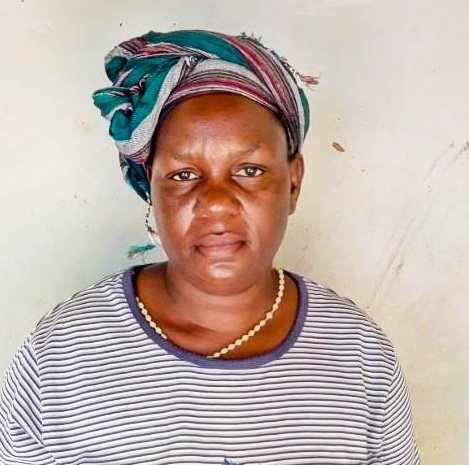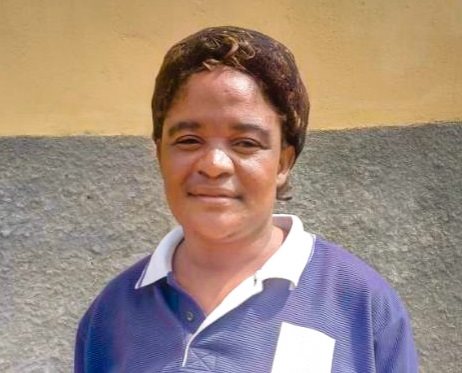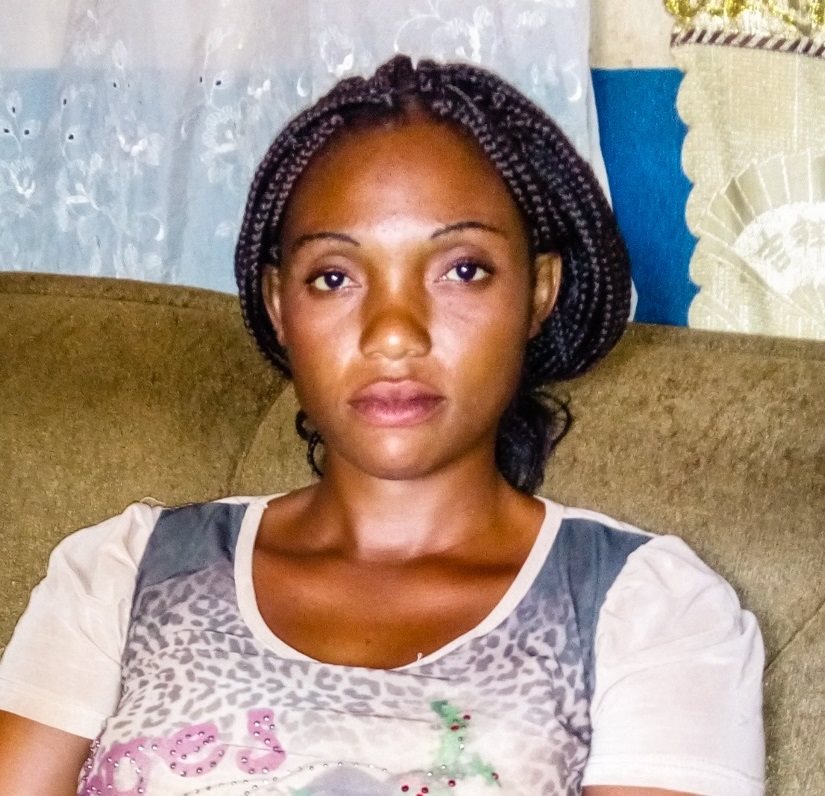How Mothers in Zambia manage their Finances
From October 2017 till February 2018, in partnership with the research firm Afriqinsights, UNCDF MM4P conducted a comprehensive research study (including qualitative and quantitative research) of over 750 mothers across Zambia. The objective of the study was to map the financial lives of Zambian mothers, understand their current level of access, awareness and usage of digital financial services, identify the major financial and non-financial challenges they face and explore the potential to develop digital financial services that could potentially address some of these challenges.
Below you will find the profiles of four mothers from the socioeconomic and geographic segments that were included in the study: urban high-income, urban middle-income and rural low-income. You can read what factors influence how these mothers earn, save, spend and plan for the future.
The persona show that mothers are entrepreneurs with appetite for savings products even though they can't always save regularly. With extended families they require transfer services at the tip of their hand and are very sensitive to fees. Finally increased awareness and accessible information will be a game changer in their capacity and willingness to adopt and use digital financial services.

Name: Margaret Nzima
Age: 44
Marital Status: Widow
Socioeconomic status: Low income
Geography: Rural-Lusaka
Most mothers in rural areas of Zambia are unable to access bank services as they cannot afford bank costs. This is the case for Margaret Nzima, a 44-year-old widow based in the rural outskirts of Lusaka. Mrs. Nzima is a mother of two. Her first pregnancy brought both excitement and sadness since she was jobless at the time and had no savings to help her care for the child. Although she received some financial support from family and friends, it was very limited. Despite her financial difficulties, Mrs. Nzima had another child whom she cares for along with two other dependants.
Mrs. Nzima works as a domestic employee on the weekends. Being the head of the family, she makes most of the decisions about daily expenses. Seeing that she only earns K940 (US$94) each month, little is left after the main expenses of food, utility and health bills, and school fees. She regularly maintains a budget of her expenditures in a notebook. Although Mrs. Nzima is unable to save, her employer contributes on her behalf to the National Pension Scheme that entitles her to a retirement package.
Mrs. Nzima uses cash rather than digital financial services due to lack of information: “No one has been able to explain to me the use and impact of digital finance products.”

Name: Dorcas Ngulube
Age:49
Marital Status: Widow
Socioeconomic status: Middle income
Geography: Urban-Kafue
Dorcas Ngulube, aged 49 and based in Kafue in the Central Province of Zambia, is a widow and mother of four children. Before the death of her husband, who was the family’s bread winner with a decent job in the formal sector, Mrs. Ngulube hardly ever faced financial challenges. Since his passing, her life took a bitter turn; she had to provide for her children and some of her rural extended family all by herself. To do so, she ventured into a business of selling second-hand clothing.
Mrs. Ngulube earns an average K3,000 (US$300) per month, which she often uses for paying household bills and as retained earnings in her business. She follows the traditional method of storing most of her earnings in her house because she failed to maintain the bank account that she had jointly with her late husband due to high bank charges. Because of her financial situation, Mrs. Ngulube relies heavily on a budget to track her expenditures: “I am always aware of items to buy as I have mastered my monthly needs in my mind.”
To access and send money, Mrs. Ngulube normally uses MTN Mobile Money or Western Union (postal services) since she finds the services to be cheap and reliable. In the past seven years, Mrs. Ngulube has been able through her savings to purchase farmland and some farm equipment as well as to provide for her relatives. She makes an effort to save about K500 (US$50) over three to four months, using her MTN Mobile Money account: “It’s very reliable and the withdraw[al] charge is low.” She had attempted to use other mobile money products and some traditional savings called ‘Chilimba,’ but none seemed to meet her financial needs.

Name: Mwaka Mutele Habeenzu
Age: 26
Marital Status: Single
Socioconomic status: Low income
Geography: Rural- Lusaka
Mwaka Mutele Habeenzu is a single mother of one. She lives with her mother who is supporting a household of nine people. Ms. Habeenzu became pregnant when she was a student and, as a result, dropped out of school. She had to rely on close friends and relatives for financial support, as the child’s father did not assume any responsibility towards her or the child.
Like many who face teen pregnancy, Ms. Habeenzu has had her share of challenges. One of the main struggles regards finances. Saving money is difficult, mainly because of meagre income, which results in a hand-to-mouth lifestyle. Given the opportunity to earn more, Ms. Habeenzu would like to save a portion of her earnings in order to purchase household necessities and cover unanticipated needs.
While in the city during school, Ms. Habeenzu was exposed to a number of financial products and ultimately opened a bank account with Zambia National Commercial Bank (commonly known as Zanaco). She generally prefers to keep money in the bank and use digital financial services rather than deal with cash. Despite enjoying digital financial services, Ms. Habeenzu explained that poor network coverage affects her access to the account. She is quite knowledgeable about different financial products available but does not use any others apart from her account with Zanaco. Her reluctance to use other digital financial services is a result of the high transaction fees as well as the occasional unreliability due to network failures.

Name: Liness Mokola
Age: 29
Marital Status: Married
Socioeconomic status: High income
Geography: Urban-Lusaka
Liness Mokola is a 29-year-old wife and mother of four children living in Lusaka, the capital city of Zambia. Mrs. Mokola and her husband are formally employed and together earn a net income of K9,000 (US900) per month[1]. In order to keep up with life in the city, Mrs. Mokola runs a retail shop that sells dried meat. The earnings from this business supplement the family’s disposable income. The revenue empowers her to make day-to-day financial decisions about school fees, clothes, food and other household needs.
With the evolution and development of the financial system in Zambia, Mrs. Mokola is able to use MTN Mobile Money to save part of her earnings and pay bills. She says mobile money is convenient as it allows her to easily and quickly conduct financial transactions for her small business. As a result of her savings, Mrs. Mokola did not feel much financial stress when she faced an unplanned pregnancy. At the time, her husband was jobless so she did not receive any financial support before or after her pregnancy. However, the family managed to survive on savings and her income.
Interestingly, Mrs. Mokola seemed hesitant to get a bank account to facilitate the family’s day-to-day transactions, saying a bank account is costly to maintain: “I would like to be provided with a financial product that provides capital for my business, allows me to easily save, has minimal charges and does not attract a high withdraw[al] cost.” Although Mrs. Mokola is already an active user of mobile money, she would love to learn more about digital financial services and how they could improve her life. She noted that working mothers are often obliged to use a specific financial product in order to comply with an employer’s payment plan and are not necessarily given the chance to choose one based on whether it is appropriate to meet her needs and demands.
These different mother profiles will now be used as persona. Together with the quantitative findings of the research, the four mother persona will help with the design or improvement of financial services for Zambian mothers.
Want to learn more about what the research on Zambian mothers revealed? Stay tuned for the report summarizing the findings from the quantitative research which will be released in a few weeks.
For more information, visit: https://mm4p.uncdf.org/ and https://www.afriqinsights.com/
July 2018. Copyright © UN Capital Development Fund. All rights reserved.
The views expressed in this publication are those of the author(s) and do not necessarily represent the views of UNCDF, the United Nations or any of its affiliated organizations or its Member States.
Photographs © UNCDF Zambia/2018, courtesy of Amish Chhagan of Afriqinsights. Interviews conducted by Amish Chhagan in February 2018.
[1]Conversion rate: US$1 = K9.975 (Source:https://treasury.un.org/operationalrates/OperationalRates.php, 30 June 2018). Note: This rate is used throughout the profiles whenever United States Dollar equivalents are provided for Zambian Kwacha.